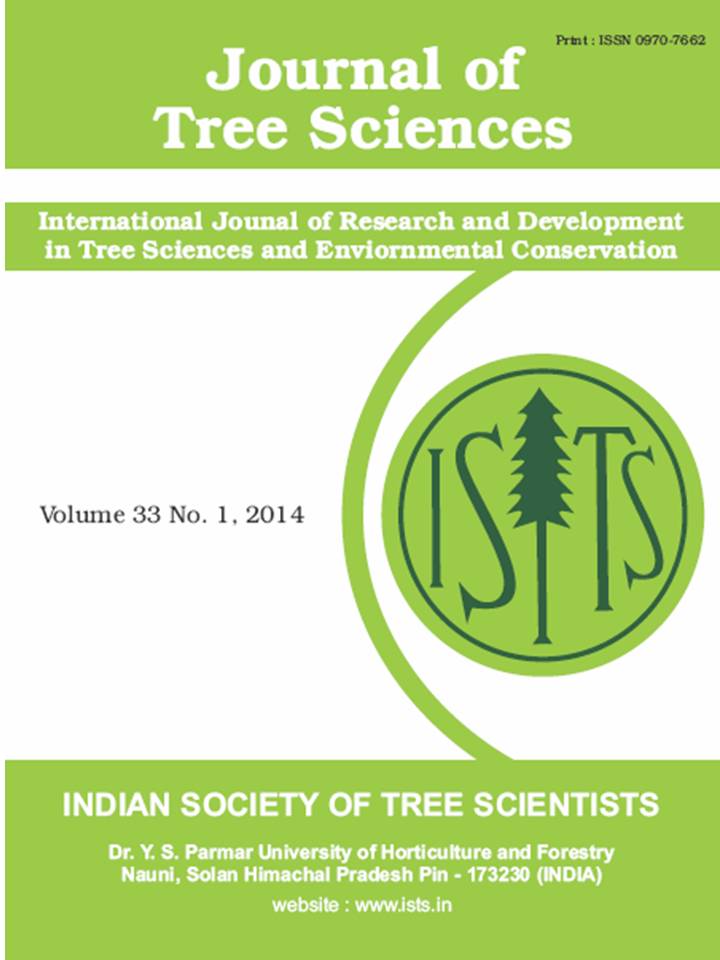Quick Links
News & Events
READ THIS JOURNAL
Life Member
ETHICAL POLICY OF JOURNAL OF TREE SCIENCES
It is important for all (journal editors, the peer reviewer, the publisher and the society) to agree upon standards of expected ethical behavior.The journal is committed to maintaining the highest level of integrity in the content published.
It is therefore important to accept ethical behavior for all involved in the publishing of the journal. Authors must be honest in presenting their results and conclusions of their research. Research misconduct is harmful for knowledge. It could mislead other researchers.
Research results
Manipulating research data with the intention of giving a false impression.Fabrication, falsification or selective reporting of data to mislead or deceive is unethical. The results of research should be kept with authors to allow for analysis and review. After publication, the data should be made available upon request.
Authorship
Authorship should be limited to those who have made a significant contribution to the conception, design, execution, or interpretation of the reported study. Transparency about the contributions of authors is encouraged. All co-authors who have made a significant contribution should be given chance to be cited as authors. The contributions of other individuals who have helped in the work should be acknowledged. Articles should include a full list of the current institutional affiliations of all authors, both academic and corporate.
Originality and plagiarism:
The authors should ensure that they have written entirely original works, and if the authors have used the work and/or words of others, that this has been appropriately cited or quoted.Simultaneous submissions of the same manuscript to different journals will not be accepted and the submitted article will be removed without consideration.
Data access and retention:
Authors may be asked to provide the raw data in connection with a paper for editorial review, and should be prepared to provide public access to such data
Acknowledgement of sources:
Proper acknowledgment of the work of others must always be given.
Disclosure and conflicts of interest:
All submissions must include disclosure of all relationships that could be viewed as presenting a potential conflict of interest.
Corrections and retractions
When an author discovers a significant error or inaccuracy in his/her own published work, it is the author's obligation to promptly notify the journal editor or publisher and cooperate with the editor to retract or correct the paper. The journal will issue retractions if there are clear evidence that the findings are unreliable. The findings have previously been published without proper crossreferencing, permission or justification (i.e. cases of redundant publication);
The journal will issue errata for any misleading information because of honest error.
Other forms of misconduct include failure to meet clear ethical and legal requirements such as misrepresentation of interests, breach of confidentiality, lack of informed consent and abuse of research subjects or materials. Misconduct also includes improper dealing with infringements, such as attempts to cover up misconduct and reprisals on whistleblowers.
The primary responsibility for handling research misconduct is in the hands of those who employ the researchers. If a possible misconduct is brought to our attention, we will seek advice from the referees and the Editorial Board. If there is the evidence, we will resolve the matter by appropriate corrections in the printed and online journal; by refusing to consider an author's future work, for a given period, and by contacting affected authors and editors of other journals.
Minor wrongdoing may not lead to formal investigations, but are just as damaging given their probable frequency, and should be corrected by teachers and mentors.
Journals front cover
